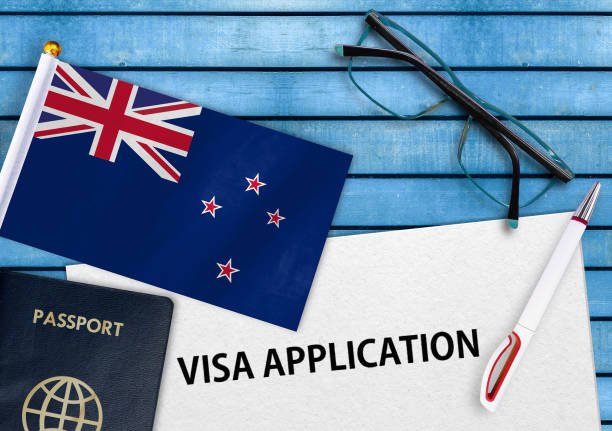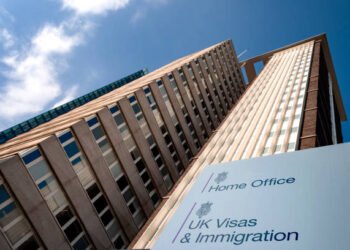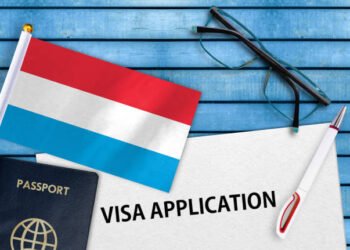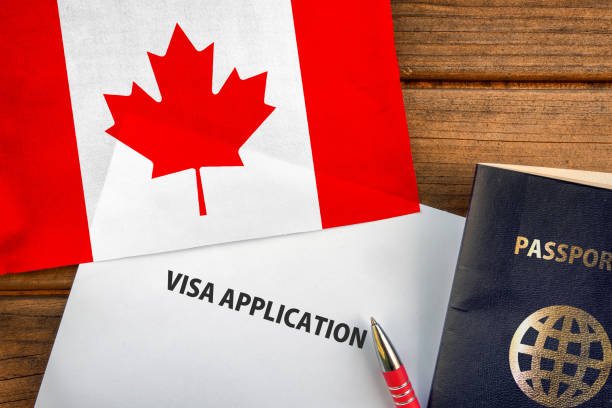New Zealand might be your next big move, who knows? With its stunning landscapes, a strong economy, and growing demand for skilled workers and international students, this peaceful island nation is opening its doors wider than ever.
For you that want to become a permanent workers. Looking to take your career to new heights? New Zealand is the real deal. With a thriving job market, competitive salaries, and a high quality of life, this island nation offers incredible opportunities for skilled workers. But before you land your dream job, understanding the visa requirements is your first step toward making it a reality.
Major Requirements To Get Your New Zealand Visa
New Zealand is an island nation that offers a range of opportunities for tourists, students, job seekers, and migrants. Whether you’re captivated by its stunning natural beauty, world-class education, or employment prospects, it’s essential to understand the visa system before traveling.
Each visitor, whether you’re seeking a job, pursuing higher education, or planning a short visit, must navigate the visa process to legally enter and stay in New Zealand. Some travelers can enter without a visa, while others must apply in advance. Knowing who needs a visa and which type suits your purpose of travel is the first step towards a successful application and your New Zealand journey.
Who Needs a Visa?
- Visa Waiver Countries: Citizens from certain countries, including the UK, USA, EU nationals, and other countries, can enter New Zealand without a visa for short stays (tourism or business) under the visa waiver program.
- Non-Visa Waiver Countries: Citizens from countries not on the visa waiver list must apply for a visa before traveling.
- NZeTA: Certain travelers, even from visa-exempt countries, must apply for a New Zealand Electronic Travel Authority (NZeTA) to enter.
Who Needs a Visa to Enter New Zealand?
Visa Waiver Countries
Travelers from visa-waiver countries do not need a traditional visa to visit New Zealand for short stays. These travelers can stay for up to three months for tourism or business purposes. Examples of visa-waiver countries include:
- United Kingdom
- United States
- European Union countries (e.g., Germany, France, Spain)
- Australia (special entry agreement)
- Canada
Countries That Must Apply for a Visa in Advance
Citizens from countries not included in the visa waiver program must apply for a visa before entering New Zealand. This includes nationals from many African, Asian, and Middle Eastern countries. It’s important to check if your country is part of the visa-exempt list or not by visiting the official Immigration New Zealand website.
New Zealand Electronic Travel Authority (NZeTA)
Even if you are from a visa-waiver country, you may need to apply for an NZeTA before boarding your flight. The NZeTA is an electronic travel authorization that applies to all visa-exempt travelers from countries like the UK, USA, Canada, and several others.
The NZeTA application can be done online or through the mobile app. It’s required for all visitors entering New Zealand for tourism, business, or transit purposes. Along with the NZeTA, an International Visitor Levy (IVL) is also paid, which helps maintain the country’s infrastructure and services.
Types of New Zealand Visas
New Zealand offers a variety of visa types based on the purpose of your visit. Below are the main visa categories, each with its specific requirements.

A. Visitor Visa
A Visitor Visa is the most common visa for those planning to visit New Zealand for tourism, visiting friends and family, or short-term business activities.
- Purpose: Tourism, visiting family/friends, business meetings, or conferences.
- Length of Stay: Generally, a visitor visa allows for stays of up to 9 months, but the exact duration is determined by immigration officials.
- Extensions: Visitor visas can sometimes be extended for another 3 to 6 months, depending on your situation.
- Requirements:
- Proof of sufficient funds to support your stay (bank statements, sponsorship letters).
- Evidence of onward travel (return flight tickets).
- A clean criminal record and satisfactory health (medical certificates, if necessary).
B. Student Visa
If you wish to study in New Zealand, you will need a student visa. New Zealand is a popular destination for international students due to its high-quality education system and vibrant student life.
- Purpose: For individuals enrolled in a full-time study program at an approved New Zealand education provider.
- Approved Education Providers: Students must study at a provider accredited by the New Zealand Qualifications Authority (NZQA).
- Requirements:
- Offer of place from an approved educational institution.
- Proof of sufficient funds to cover tuition fees, living expenses, and return travel.
- Health insurance for the duration of your stay.
- Proof of English proficiency (e.g., IELTS, TOEFL).
- Some students may be allowed to work part-time during their studies.
C. Work Visa
New Zealand has a range of work visa options for those who want to live and work in the country. Here are the most common work visas:
- Accredited Employer Work Visa (AEWV):
- Designed for foreign workers who have been offered a full-time job by an employer accredited by Immigration New Zealand.
- Employers must prove there is a genuine need for a foreign worker.
- Required for long-term skilled workers, especially in industries like healthcare, engineering, and IT.
- Essential Skills Work Visa:
- For workers filling a role in high demand or one that requires specific skills.
- The Essential Skills Work Visa is being phased out in favor of the AEWV.
- Post-Study Work Visa:
- For international students who have completed a qualification at a recognized New Zealand education provider and wish to work in New Zealand.
- Valid for up to three years, depending on your qualification level and the region where you will be working.
- Working Holiday Visa:
- For young people (usually aged 18-30) from eligible countries who want to work and travel in New Zealand for up to one year.
- Limited to certain countries and specific conditions (e.g., proof of sufficient funds to support initial travel).
D. Resident Visa
New Zealand offers several pathways to residency, allowing individuals to live permanently in the country.
- Skilled Migrant Category:
- The most popular route for skilled workers. Applicants are assessed on a points-based system, considering factors such as age, work experience, qualifications, and job offer.
- Individuals who meet the points threshold and have a job in an area of skill shortage are granted residency.
- Residence from Work Visa:
- For workers who have been in New Zealand for a certain period on a temporary work visa and wish to transition to permanent residence.
- Family Reunification:
- Partnership-based visas allow the spouses, civil partners, or dependent children of New Zealand residents or citizens to apply for permanent residency.
E. Business and Investor Visas
For entrepreneurs and investors looking to establish or invest in a business in New Zealand, the following visa options are available:
- Investor 1 and Investor 2 Visas:
- For individuals willing to invest a significant sum of money in New Zealand. The Investor 1 Visa requires a higher investment threshold compared to the Investor 2 Visa.
- Entrepreneur Work Visa:
- For individuals wishing to start or buy a business in New Zealand. Applicants must have a solid business plan and demonstrate their ability to run a successful business in the country.
General Visa Requirements
Before applying for a visa to New Zealand, it’s essential to know the general requirements that all applicants must meet. These requirements are fundamental to ensure a smooth visa application process.
Valid Passport
- Minimum validity: Your passport must be valid for at least 6 months from the date you plan to enter New Zealand. This is a common requirement across most visa categories. Without this, your application may be rejected.
- Clear pages: Ensure that your passport has enough blank pages for the visa stamp or label. Some visa applications might require you to submit a copy of your passport, including the bio-data page.
Completed Application Form
- Online application: Most New Zealand visa applications are completed online through the official Immigration New Zealand website.
- Accurate information: It’s essential to fill out the application form truthfully and accurately. Providing incorrect information can lead to visa refusal or delays.
Application Fees and Processing Times
- Visa fees: Each visa type has its own processing fee, which can range from a few hundred to over a thousand New Zealand dollars. Fees must be paid online at the time of application.
- Processing times: Processing times vary based on the type of visa and the applicant’s nationality. Generally, visitor visas take 3-4 weeks to process, while work and residency visas may take several months. Always check the estimated processing time for your specific visa type.
Evidence of Financial Support
- Proof of funds: You must prove that you have enough funds to support yourself during your stay in New Zealand. This can be shown through:
- Recent bank statements
- Sponsorship letters (if someone in New Zealand is sponsoring you)
- Payslips
- Amount required: The specific amount varies depending on the length of stay and type of visa, but the general expectation is NZD $1,000 per month for tourists.
Health and Character Requirements
- Medical certificate: Depending on the type of visa, you may be asked to undergo a medical examination. This is usually required for long-term visas or residency applications.
- Police clearance: Most visa categories require a police certificate to prove that you do not have a criminal record. This is especially important for residency and work visas.
English Language Proficiency
- For certain visas: Some visa applicants, especially those applying for work or study visas, may need to prove their English language skills. This is usually done by submitting results from recognized tests such as IELTS, TOEFL, or PTE.
- Required score: The minimum English proficiency required depends on the visa type and the level of the occupation or study program.
NZeTA and IVL (International Visitor Levy)
For visa-exempt travelers, the New Zealand Electronic Travel Authority (NZeTA) is a must, and travelers should also be aware of the International Visitor Levy (IVL).
Who Needs to Apply for an NZeTA
- Visa-waiver countries: Citizens of visa-waiver countries (such as the UK, USA, Canada, and most EU nations) who are visiting New Zealand for short stays (up to 3 months) for tourism or business must apply for an NZeTA.
- Transit passengers: Even if you’re only transiting through New Zealand, you may need to apply for an NZeTA if you’re a citizen of a visa-waiver country.
How to Apply for NZeTA
- Online or via mobile app: You can apply for the NZeTA online via the official Immigration New Zealand website or through the mobile app available for both iOS and Android.
- Simple steps: The application asks for basic information such as personal details, passport information, and travel dates. You may also need to answer a few health and security questions.
Processing Time and Cost
- Processing time: The NZeTA is typically processed within 72 hours, but it’s advisable to apply at least a few days before your departure.
- Cost: The NZeTA costs NZD $12 if applied through the mobile app or NZD $9 for online applications. Additionally, the IVL fee of NZD $35 must also be paid as part of the NZeTA application.
When IVL Must Be Paid
- International Visitor Levy (IVL): The IVL is paid alongside the NZeTA and is a requirement for all visa-exempt travelers. It contributes to the maintenance and development of New Zealand’s infrastructure for tourists, such as healthcare and other services.
- Exemptions: Some travelers may be exempt from paying the IVL, such as those traveling on diplomatic or military visas, or certain children under the age of 2.

Step-by-Step Guide to Applying for a New Zealand Visa
Navigating the visa application process can be overwhelming, but following these clear steps can help you apply for your New Zealand visa successfully.
Step 1: Create an Account on the Immigration New Zealand Website
- Visit the official Immigration New Zealand website and create an account to begin the visa application process.
- Having an account allows you to track the status of your application and manage any correspondence with immigration authorities.
Step 2: Choose the Correct Visa Category
- Identify the visa category that aligns with your purpose of travel (tourism, work, study, etc.). The correct category ensures that your application is processed smoothly and avoids unnecessary delays.
Step 3: Prepare and Upload Supporting Documents
- Gather all necessary documents for your visa application, including your passport, proof of financial support, and any additional documents required for your specific visa type (e.g., medical certificate, police clearance, English proficiency test results).
- Ensure all documents are scanned clearly and uploaded as per the guidelines provided by Immigration New Zealand.
Step 4: Pay Fees
- Visa application fees must be paid online when submitting your application. Payment is often made via credit or debit card. Ensure you keep the payment receipt for future reference.
Step 5: Submit Biometrics or Attend Interviews (if required)
- Some applicants, especially for work or residence visas, may be required to submit biometrics (fingerprints and a photo).
- In some cases, applicants may also need to attend an interview at a New Zealand embassy or consulate.
Step 6: Wait for Decision
- After submitting your application and documents, wait for a decision from Immigration New Zealand. Processing times can vary depending on the visa type.
- Ensure that you check your email regularly for any updates or requests for additional information.
Common Reasons for Visa Refusal
Visa applications are sometimes refused for a variety of reasons. Understanding these common issues can help you avoid mistakes and improve your chances of approval.
Incomplete or False Documentation
- Submitting incomplete or inaccurate documentation is one of the most common reasons for visa refusals. Always double-check that you have submitted all required documents and that they are accurate and truthful.
Insufficient Funds
- If you are unable to demonstrate that you have enough funds to support yourself during your stay in New Zealand, your visa application may be rejected. Be prepared to provide evidence of your financial resources.
Poor Travel History or Overstays
- If you have a history of overstaying visas or traveling without respect to immigration laws, your application could be refused. Always adhere to visa conditions and maintain a clean travel record.
Failure to Meet Health or Character Requirements
- If you fail the health or character requirements, your application may be rejected. This could be due to medical conditions or criminal history that is deemed a risk to New Zealand.
Tips for a Successful Application
Securing your New Zealand visa involves careful preparation. Here are some tips to help you avoid pitfalls and increase your chances of success.
Apply Early (Especially During Peak Seasons)
- The visa process can take time, especially during peak seasons (such as the summer months or school holidays). Apply well in advance to avoid any last-minute stress.
Ensure Documents Are Translated (If Not in English)
- If any of your documents are in a language other than English, they must be translated by an official translator. Immigration New Zealand may reject your application if your documents are not in English.
Double-Check Entry Conditions Before Booking Travel
- Ensure that your visa allows for the dates and length of stay you intend. Sometimes, people book their flights without confirming their visa approval or conditions, which can lead to complications.
Seek Professional Advice for Complex Cases
- If your visa application is complicated, or if you are unsure about the correct visa type or requirements, consider consulting an immigration advisor or lawyer who specializes in New Zealand immigration. They can provide expert guidance and support to help you navigate the process successfully.
Life After Arrival
Once your New Zealand visa is approved and you have arrived in the country, there are several important steps to take to ensure a smooth transition and compliance with local laws and regulations. Here’s what you can expect:
What to Expect at the Border
- Immigration and customs checks: Upon arrival, you will pass through immigration, where your passport and visa will be checked. Be prepared to answer questions about the purpose of your visit and provide supporting documents if requested.
- Biosecurity checks: New Zealand has strict biosecurity rules to protect its unique environment. You may be asked to declare any items that could pose a risk to local ecosystems, such as food, plants, or animal products. Make sure you declare anything that is required by the regulations to avoid fines or delays.
Getting a Tax Number (IRD)
- Applying for an IRD number: If you are planning to work or study in New Zealand, you will need to apply for an IRD number (Inland Revenue Department number). This is essential for tax purposes and is required for receiving wages or other income.
- How to apply: You can apply for your IRD number online through the official Inland Revenue website, or you can submit your application at a local post office or New Zealand embassy if you are outside the country.
Opening a Bank Account
- Setting up a bank account: As part of your financial arrangements in New Zealand, you will likely need to open a local bank account. This is necessary for receiving wages, paying bills, and handling day-to-day transactions.
- Documents required: To open a bank account, you will need:
- A valid passport or New Zealand ID
- Proof of your address (e.g., rental agreement, utility bill)
- Your IRD number (if working)
Your Rights and Responsibilities on a Visa
- Stay within visa conditions: Once you are in New Zealand, it’s crucial to stay within the conditions of your visa. These conditions could include the type of work you can do, how long you can stay, and any travel restrictions. Breaching visa conditions can lead to penalties or visa cancellation.
- Rights: As a visa holder, you are entitled to certain rights, such as the ability to work (if your visa allows), access to healthcare (through public or private options depending on your visa), and protection under New Zealand law.
- Responsibilities: You must ensure that you comply with all immigration laws, report any changes in your situation to Immigration New Zealand (e.g., change of address, job, or partner), and apply for an extension or change of visa status before your current visa expires if needed.
Extending or Changing Visa Categories in New Zealand
- Visa extension: If you wish to stay in New Zealand beyond the period permitted by your current visa, you must apply for an extension before your visa expires. Extensions are typically available for work, study, or visitor visas, provided you meet the relevant criteria.
- Changing visa categories: If your circumstances change (e.g., you find a new job or wish to move from a visitor visa to a work visa), you can apply to change your visa type. It’s important to submit your application in advance and ensure that you meet the requirements for the new visa category.
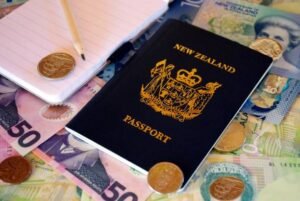
Some FAQs for you
Can I work on a tourist visa?
- No: A tourist visa only allows you to stay in New Zealand temporarily for tourism purposes, not for employment. If you wish to work, you will need to apply for a work visa. Violating visa conditions by working on a tourist visa could result in deportation or a ban on future applications.
Can I bring my family with me?
- Yes: Many types of New Zealand visas, including work, student, and resident visas, allow applicants to bring their partner, children, and sometimes dependent parents with them. Your family members will need to apply for visas as well, and their visa type will depend on the main applicant’s visa category.
What’s the fastest visa option?
- Visitor Visa: For short stays, the visitor visa is often the quickest option to get to New Zealand. It usually takes a few weeks to process and allows you to stay for up to 9 months.
- Work and Study Visas: If you have an employer in New Zealand or are accepted into a recognized educational institution, the process may be faster for a work or student visa, but it will depend on the specific visa type and application details.
How long can I stay on each visa?
- Visitor Visa: Typically allows stays for 3 to 9 months, depending on the purpose of your visit.
- Work Visa: Work visas can vary widely in duration from 6 months to 5 years, depending on the type of visa you have and your job role.
- Student Visa: The duration of a student visa depends on the length of your study program and can range from several months to multiple years.
- Resident Visa: Resident visas generally provide indefinite stay, but the initial approval may be for 2 years, after which you can apply for permanent residency.
Conclusion
Securing a New Zealand visa is an essential first step in embarking on a life-changing journey to one of the world’s most beautiful and dynamic countries. With the right information and preparation, the visa application process can be straightforward and stress-free.
Reiterate the Importance of Choosing the Correct Visa Type
Choosing the right visa is crucial, as applying for the wrong visa could lead to delays, complications, or even a refusal. Make sure you thoroughly understand your travel or work goals and select a visa that aligns with your needs.
Encourage Early Preparation and Honest Documentation
Preparation is key when applying for a New Zealand visa. The earlier you start your application, the better, and always ensure that your documentation is accurate and truthful. Providing false or misleading information can result in severe consequences, including a ban from applying in the future.

